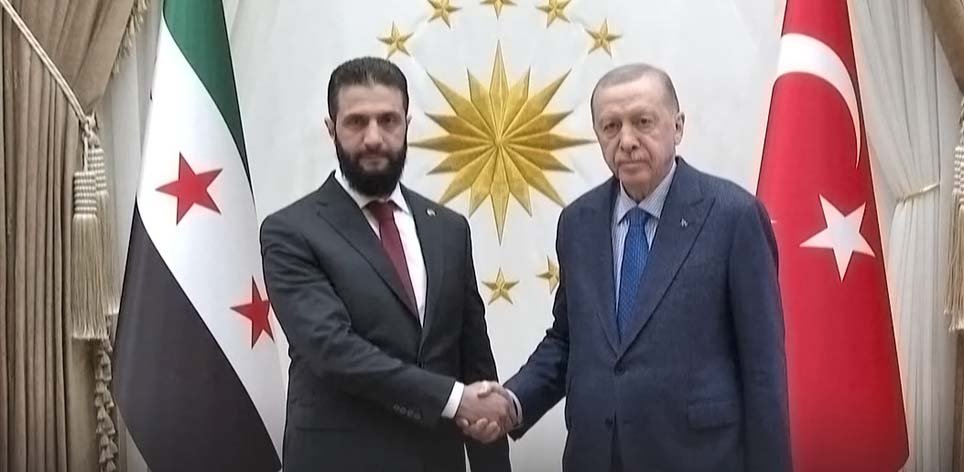This week, Turkish President Recep Tayyip Erdogan and Syrian Foreign Minister Faisal Mekdad met in Ankara for hitherto unheard-of discussions meant to reduce Kurdish insurgent activity along their common border. Celebrated as a possible turning point in cold Turkey- Syria relations, the debates highlighted humanitarian issues and immediate security cooperation. Here is a close-up view of the subtleties, geographical ramifications, and human narratives underlying the headlines of the conference.
From Civil War to Strange Bedfellows: Why Now?
The Ankara talks are the first high-level dialogue between Turkey and Syria since 2011, when Erdogan called for Assad’s ouster and funneled weapons to Syrian rebels. So, what changed?
- The Kurdish Conundrum:
- The Kurdistan Workers’ Party (PKK), banned in Turkey, and its Syrian ally, the People’s Protection Units (YPG), now control swaths of northern Syria. Turkey views them as existential threats; Syria, once reliant on the YPG to fight ISIS, now sees their autonomy bids as destabilizing.
- According to the Crisis Group, Turkey has conducted over 50 military operations in Syria since 2016, displacing thousands but failing to eradicate Kurdish forces.
- Regional Power Shifts:
- Russia, Syria’s lifeline, is pushing Ankara-Damascus reconciliation to consolidate its Middle East influence.
- Iran, another Assad ally, fears losing leverage if Syria-Turkey ties warm.
- The U.S., stuck between its YPG allies and NATO member Turkey, is quietly panicking. “Washington’s worst nightmare is a Turkish-Syrian pact that sidelines the YPG,” a Pentagon source told Foreign Policy.
Inside the Talks: What Was Agreed—And What Wasn’t
On the Table:
- Joint Military Ops: Turkey proposed coordinated strikes on YPG positions in Tal Rifaat and Manbij—key towns near the border.
- Border Security Corridors: A 30-kilometer “safe zone” to block Kurdish movement, monitored by Russian drones (Al-Monitor).
- Refugee Returns: Turkey seeks EU funding to repatriate 1 million Syrians, but Damascus demands reconstruction aid first.
Sticking Points:
- Occupied Territories: Turkey controls parts of Idlib and Afrin, where it backs anti-Assad rebels. Syria insists on full withdrawal—a nonstarter for Erdogan.
- The YPG’s Fate: While Syria agreed to label the YPG a “security risk,” it stopped short of branding them terrorists, wary of alienating Kurdish communities.
- Trust Deficits: “Syria won’t forget Turkey’s role in the war,” said Samir Aita, a Damascus-based analyst. “This is a marriage of convenience, not love.”
“We Are Not Pawns”: Voices from the Frontlines
In Raqqa, Syria:
Once an ISIS stronghold, Raqqa is now YPG-administered. “Turkey calls us terrorists, but we liberated this city from ISIS,” said Delvin, a 24-year-old YPG fighter. “If Turkey and Syria attack us, we’ll defend our land—to the death.”
In Şanlıurfa, Turkey:
Near the Syrian border, Turkish farmer Mehmet Yılmaz’s fields are littered with shrapnel from PKK clashes. “My brother was killed in a roadside bomb last year,” he said, voice trembling. “Erdogan says he’ll protect us. We’ll see.”
In Beirut, Lebanon:
Syrian refugee Aya Al-Masri, 19, hasn’t seen her homeland in a decade. “If Turkey forces us back, Assad’s police will torture my father for fleeing,” she told The New Humanitarian. “We’re trapped between two fires.”

The Global Ripple Effect
U.S. Quandary:
The Pentagon has spent $1.6 billion arming the YPG since 2014. Now, Turkey’s push for joint ops puts Washington in a bind. “We’re scrambling to reassure the YPG without provoking Ankara,” a State Department official confessed to Axios.
Russia’s Double Game:
Moscow is mediating but also selling drones to Turkey. “Putin wants Turkey dependent on Russian arms while keeping Assad in line,” said analyst Anna Borshchevskaya.
Iran’s Silent Fury:
Tehran opposes the talks, fearing a Sunni Arab-Turkish alliance could weaken its Shia axis. Pro-Iran militias in Syria have already vowed to “resist Turkish occupation.”
The Road Ahead: Minefields and Miracles
Erdogan’s Tightrope:
With Turkey’s economy in crisis (inflation hit 85% in 2023) and elections looming, Erdogan needs a win. But cooperating with Assad risks backlash from nationalist voters.
Assad’s Calculated Gamble:
The Syrian leader, once a pariah, is exploiting the Kurdish issue to regain international legitimacy. The UAE and Saudi Arabia recently reopened embassies in Damascus—a sign of shifting tides.
The Kurds’ Ultimatum:
The YPG warns that Turkish-Syrian collaboration will backfire. “If they attack us, we’ll ally with anyone—even Assad’s enemies,” a YPG commander told Syria Direct.
Conclusion: A Fragile Dawn
For Erdogan and Mekdad, the Ankara meeting was a first step. But for Fatima in Afrin, Mehmet in Şanlıurfa, and Aya in Beirut, it’s a flicker of hope in a 12-year darkness. “We’ve survived war, ISIS, and airstrikes,” Fatima said. “Maybe peace can survive too.”
Yet, as night falls over Ankara, one question lingers: Can old enemies write a new chapter—or will history repeat itself?
Related Video (Video Link)
Sources
- Crisis Group: Turkey’s Syria Conundrum
- Foreign Policy: U.S. Anxiety Over YPG-Turkey Tensions
- Al-Monitor: Inside the Turkey-Syria Safe Zone Talks
- The New Humanitarian: Syrian Refugees: “We Can’t Go Back”
- Axios: Pentagon’s YPG Dilemma
Explore More
- Assad Breaks Silence: Blames Terrorism for Syrian Regime’s Collapse Amid Mounting Crisis
- Foreign Powers Jockey for Control in Post-Assad Syria, Risking New Conflict
- What Happened During Assad’s Final Hours in Syria: Deception, Despair, and Flight
- Syrian Rebel Leader Announces Plans to Restructure Post-Regime Forces and Dismantle Prisons
- Rebel-Backed Figure Takes on Interim Prime Ministerial Role for Syria
- Syria Live Updates: Putin to Provide Asylum to Assad in Russia, Kremlin Confirms
- Biden: Assad’s Fall in Syria a Justice Victory Amid Regional Risks
- The Fall of Bashar Assad: A Dramatic End to Syria’s Longstanding Government
- Syrian Rebels Intensify Dual Front Assaults Against Assad’s Regime
- A Comprehensive Study of Sudden Rebel Gains During Syria’s 13-Year War

